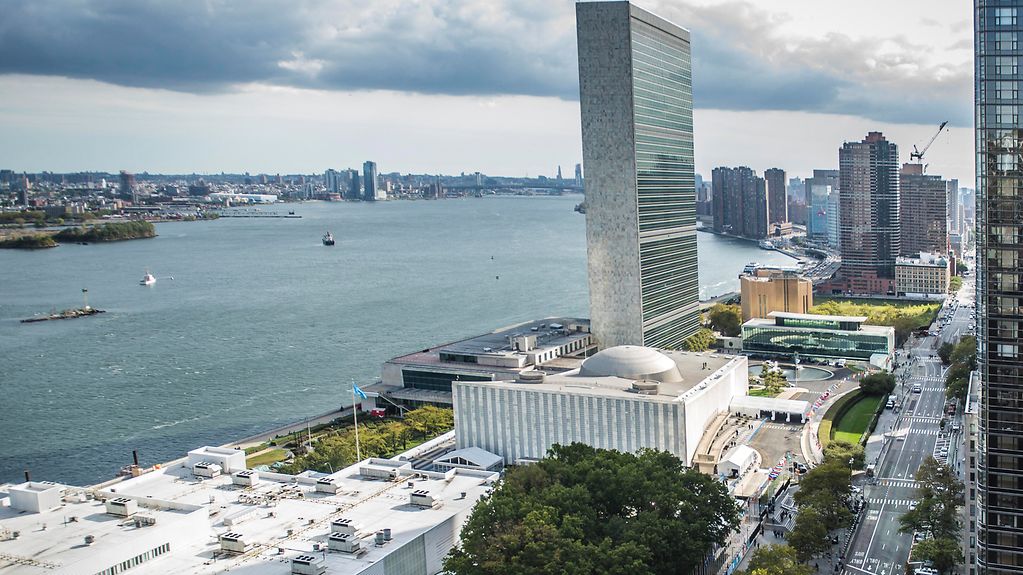Annual Disarmament Report 2020
2020 again brought challenges to the international disarmament and arms control architecture. The German government has accepted these challenges and is working extremely hard to strengthen arms control structures. Here is an overview of the Annual Disarmament Report.
3 min reading time

In 2019 and 2020 Germany had a seat on the United Nations Security Council, which meets at UN Headquarters in New York.
Photo: Bundesregierung/Kugler
Disarmament and arms control policy helps foster cooperative security between states, generates transparency and contacts, also at military level, and thus creates greater trust and predictability in the long term. The German government sees it as a crucial element of forward-looking foreign and security policy.
A seat on the UN Security Council
In spite of the restrictions made necessary by the COVID-19 pandemic, the multilateral system demonstrated its adaptability in 2020. The UN bodies were able to continue their work and decision-making. In response to an initiative of the German government, the Security Council discussed nuclear disarmament and the goal of a world without nuclear weapons.
On the road to this goal, the Nuclear Non-Proliferation Treaty provides the main diplomatic framework for action and the foundation for the global nuclear disarmament and non-proliferation architecture. The review conference scheduled for 2020 had to be postponed until summer 2021 as a result of the pandemic. The German government and its partners are using the additional time for intensive preparation and diplomacy that ought to help ensure the success of the conference.
The Annual Disarmament Report 2020 represents the obligation of the German government to report on an annual basis to the German Bundestag. It informs the German Bundestag and the general public about the guidelines and substantive priorities of German policies.
Iran nuclear deal
The extension of the New START Treaty by the US and Russian governments is an indication of a new dynamism in nuclear arms control. The German government has been an active advocate of this over the last year. This is vitally important, in particular with a view to the challenges involved in efforts to retain the Joint Comprehensive Plan of Action (JCPoA) with Iran.
Along with France and the United Kingdom, EU partners, Russia and China, the German government continues to endeavour to preserve the Iran nuclear deal. The will of all parties to retain the deal is evident in the ongoing negotiations in Vienna, but difficult questions still need to be resolved.
Germany’s Presidency of the EU Council initiated “Strategic Process”
New technology used for military purposes has the potential to fundamentally change armed conflicts in future. Work on arms control for the future was again a substantive priority of the German government in 2020. Within the framework of Germany’s Presidency of the Council of the European Union, the German government and other European nations initiated a “Strategic Process” in the European Union that is to help develop arms control instruments for new military technologies.
Navalny’s poisoning – breach of the Chemical Weapons Convention
The poisoning of the Russian opposition leader Alexei Navalny with a nerve agent demonstrates that the taboo on the use of chemical weapons set out in the Chemical Weapons Convention was again breached in 2020.
Investigations into the use of chemical weapons in Syria being conducted under the auspices of the Organisation for the Prohibition of Chemical Weapons (OPCW) made progress last year, but are still far from complete. The German government is working to ensure that those responsible for these heinous crimes are identified and held accountable.
The Annual Disarmament Report 2020 will be available on the website of the German Federal Foreign Office.